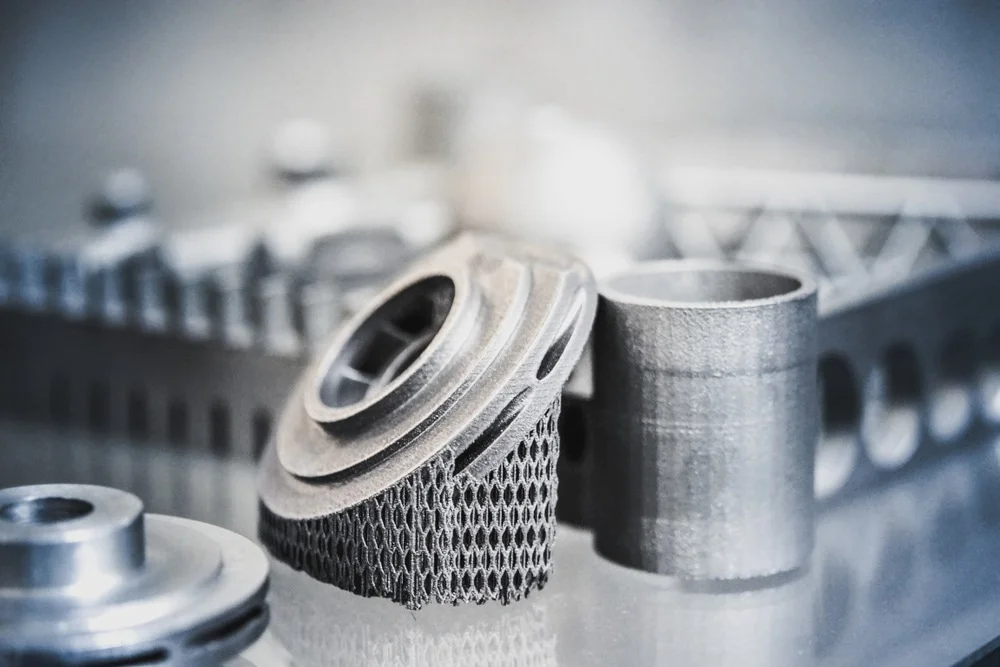ASTM E1459 Elevated Temperature Fatigue Crack Growth Testing
The ASTM E1459 test method is a critical tool in materials science and engineering, providing insights into the fatigue behavior of metallic components under high temperatures. This testing procedure is essential for ensuring the reliability and longevity of materials used in extreme conditions, such as those found in aerospace, automotive, power generation, and petrochemical industries.
The test measures crack growth rates at specified stress levels over time to determine the fatigue life of a material under cyclic loading. It simulates real-world operating environments where components are subjected to both temperature and mechanical stress simultaneously. By understanding these parameters, engineers can optimize material selection and design for improved performance and safety.
The ASTM E1459 test is particularly valuable in sectors like aerospace, where lightweight materials must withstand extreme temperatures without compromising structural integrity. In power generation, it helps evaluate the resistance of turbine blades to fatigue failure due to high-temperature steam cycles. For automotive applications, this testing ensures that engine components can endure prolonged periods at elevated operating temperatures without cracking or failing.
The procedure involves subjecting a sample, typically in the form of a cylindrical specimen with a controlled notch, to cyclic loading within an elevated temperature environment. Specimen preparation is crucial; it must be carefully machined and heat treated according to strict specifications. The testing apparatus includes specialized furnaces capable of maintaining precise temperature control and fatigue machines that can apply controlled stress cycles.
The results are reported in terms of the crack growth rate as a function of cyclic loading and temperature. These data points provide valuable information about the material's resistance to fatigue failure, allowing for informed decisions regarding component design and service life predictions. Compliance with international standards such as ASTM E1459 ensures that testing is consistent and reproducible across different laboratories.
- International Acceptance: ASTM E1459 has been widely accepted in various countries and industries, including the United States, Europe, and Asia. It is recognized by regulatory bodies such as the Federal Aviation Administration (FAA) for aerospace applications and the American Society of Mechanical Engineers (ASME) for pressure vessel codes.
Industry Applications
The ASTM E1459 Elevated Temperature Fatigue Crack Growth Testing is widely used across several industries where high-temperature materials performance is crucial. Aerospace manufacturers rely on this test to ensure the reliability of turbine blades and engine components, which are subjected to extreme temperatures during flight operations.
In automotive engineering, this testing helps in developing powertrain components that can withstand prolonged exposure to high operating temperatures without failure. The petrochemical sector uses ASTM E1459 to evaluate the integrity of piping systems and reactors exposed to high-temperature processes.
The nuclear industry also benefits from this test method by ensuring the durability of reactor pressure vessels and other critical components under sustained thermal stress conditions. By employing ASTM E1459, these industries can enhance product reliability and safety while minimizing maintenance costs and downtime associated with component failures.
International Acceptance and Recognition
- The ASTM E1459 test method is accepted by major regulatory bodies worldwide, including the European Union's Aviation Safety Agency (EASA), the U.S. Federal Aviation Administration (FAA), and international standards organizations like ISO.
- It is also recognized in key industry sectors such as aerospace, automotive, nuclear, petrochemicals, and power generation. Compliance with ASTM E1459 ensures that materials meet stringent quality and safety requirements across these industries.
Use Cases and Application Examples
In the aerospace industry, ASTM E1459 is used to evaluate the fatigue life of turbine blades subjected to high-temperature cycles. This testing helps in optimizing material selection for engine components that must perform reliably under severe operating conditions.
For automotive applications, this test ensures the durability of powertrain components exposed to prolonged high temperatures. In petrochemical facilities, ASTM E1459 is used to assess the integrity of piping systems and reactors subjected to elevated temperature processes.
In the nuclear industry, it helps in verifying the long-term performance of reactor pressure vessels under sustained thermal stress conditions. By conducting ASTM E1459 tests, these industries can enhance product reliability and safety while minimizing operational risks associated with component failures.





